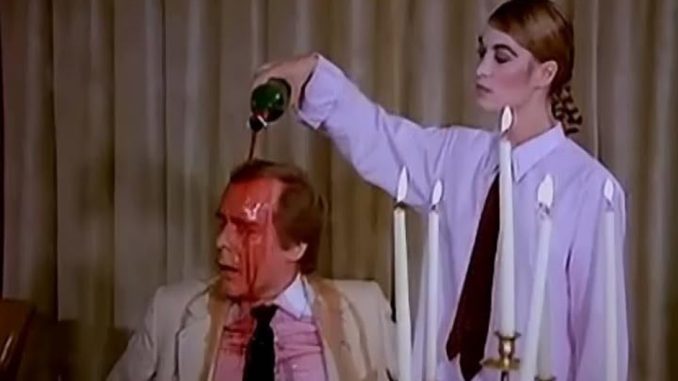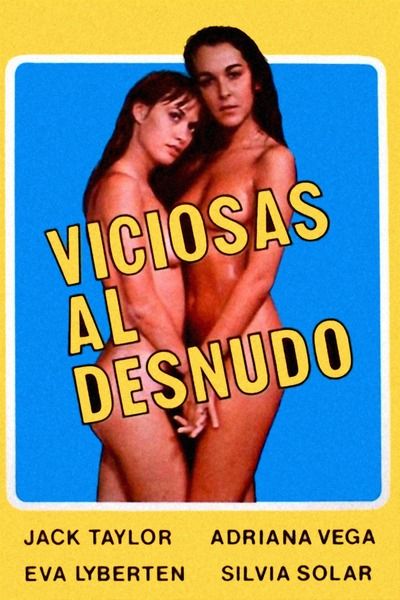
Rating: C-
Dir: Manuel Esteba
Star: Jack Taylor, Adriana Vega, Eva Lyberten, Silvia Solar
a.k.a. Viciosas al desnudo
Spanish cinema under General Franco was heavily censored, as much for potentially problematic politics as sexual content. But it didn’t take long after Franco’s death in 1975 for state control to be relaxed, as the transition to democracy took place. By the time this unofficial remake of Death Game was released, it appears you could cram as much nudity – well, female nudity, at least – into your film as you wanted. And in Esteba’s case, that’s a lot. There’s no mistaking the inspiration of this bootleg copy, with Juan (Taylor) being visited by two attractive but mentally disturbed young women (Vega and Lyberten) while his wife Maria (Solar) is away. It’s all downhill from there for poor Jack, after the threesome.
Both films seem to make deliberately inappropriate use of music. Death Game has a startlingly perky theme, burbling on about “dear old Dad”, which then crops up subsequently on several occasions, to equally dissonant effect. Here, peak WTF? on the soundtrack is achieved with a disco version of Danny Boy. Though it’s unclear whether Esteba was actually aware of the song’s connotations, or simply using a track from his apparently extensive collection of Music to Shag By albums. This is particularly notable during the threesome, which goes on and on and on. And on – even after Jack has fallen unconscious – for about five sax-heavy tunes, before an abrupt ending. The girls may not get names, but you will become very familiar with their flesh.
 To the point of tedium, to be honest. There are considerably less scenes of them interacting with their prey, instead just lounging around in his pool, flashbacks to them robbing a flower shop, etc. Their torture is fairly light, relatively speaking. He’s made to eat paella with mustard! Wine is poured on his head (top)! If that’s all the cost of a hot threesome, viewers may be wondering where they can sign up. Indeed, the women are packed up to leave, when Jack’s agent shows up, after being contacted by a concerned Maria. The ending does share with Death Game a combination of driver’s ed film with a moral that crime must not pay. It’s less abrupt, yet still a head-scratcher.
To the point of tedium, to be honest. There are considerably less scenes of them interacting with their prey, instead just lounging around in his pool, flashbacks to them robbing a flower shop, etc. Their torture is fairly light, relatively speaking. He’s made to eat paella with mustard! Wine is poured on his head (top)! If that’s all the cost of a hot threesome, viewers may be wondering where they can sign up. Indeed, the women are packed up to leave, when Jack’s agent shows up, after being contacted by a concerned Maria. The ending does share with Death Game a combination of driver’s ed film with a moral that crime must not pay. It’s less abrupt, yet still a head-scratcher.
It’s most interesting in its differences. For example, the visitors’ ages are never brought up, unlike Death Game, where it’s used as leverage against the victim. Mind you, the age of consent in Spain at the time was twelve, so making them underage would have been tough. Jack is also a writer, who has an optimistic view of the youth of today. We first meet him debating this with his far more cynical agent, Jack saying, “Today’s young people are far healthier than those of our day, due to their lack of prejudices”. Turns out he’s not as hip to the kids as he thinks, and the generational gap is a main theme. But apart from the copious nudity, this is a forgettable copy, without much edge.
